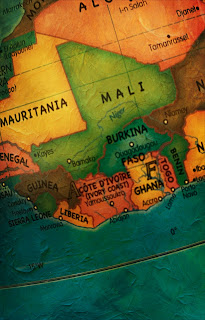READ
The setting for Children
Come by Ship, written by Oliver Friggieri and translated by Marina
Lowell, is a small, unnamed village on an unnamed island. The book’s editor quotes
the author in an afternote saying that “[t]he general surroundings evolved from
my efforts to recreate, on a literary level, the small world of family life
during the Fifties in the Balzunetta neighbourhood of Floriana, where I grew up
and lived for many years.”
The village in Children Come by Ship is very traditional, a place where things are always done a certain way and a person’s or family’s honor trumps all other considerations. It is a place where the “powerful Northwest wind itself was not strong enough to blow away even one old idea and replace it with a new one.”
This rigidity is on display in the opening chapter as a young woman named Susanna appears late at night on the doorstep of the kindly local priest, Fr. Grebjel. Susanna’s parents have discovered that she is pregnant and they have banished her from their home. Having nowhere else to go, Susanna begs for help from Fr. Grejbel. He invites her in and hears her story – a love affair with a young man who abandoned her as soon as he found out she was pregnant. For her part, Susanna says she really didn’t expect to become pregnant, as she didn’t know what was involved in conceiving a child. She explains, “I had never learnt anything about these things. My mother used to tell me that children come by ship…”.
Fr. Grebjel is the most caring, least judgmental of priests, and he helps Susanna in any way he can throughout the book. He allows her to spend the night in his spare bedroom, attempts to reconcile Susanna and her parents, and finds her a job in a neighboring village. He believes in the power of love to overcome any obstacle, although Susanna frequently tells him that he is naïve and too good for this world.
There are times throughout this book when it seems that everything will turn out well for Susanna, and times when it’s clear that they will not. There are also times when it seems impossible that Fr. Grebjel will be able to continue to minister to people who are scandalized by his inability to be offended by the same things that offend them.
The book did not have the ending I wanted, but I was interested to learn that the author wrote a sequel, Let Fair Weather Bring Me Home. I don’t know whether I’ll read it or not – I’m not sure I could take the disappointment of another sad ending.
COOK
Food was rarely mentioned in Children Come by Ship, but that was just as well since I’d already decided what Maltese dish I was going to make. I found a recipe online for froga tat-tarja, which is basically a pasta omelet. I found a couple of recipes for a vegan version, but they were complicated and had way too many ingredients, so I found a non-vegan recipe on the International Cuisine website and made the necessary substitutions: JUST Egg replaced the egg, and vegan Parmesan replaced the dairy-based Parmesan.
It took a little experimentation to get this recipe just
right. The original recipe called for two eggs, which would be six tablespoons
of JUST Egg. That wasn’t nearly enough, so I kept adding more until the mixture
had the desired consistency. By the time I was done, I had added the entire
bottle of JUST Egg, but it was totally worth it. I loved this dish, and will
definitely make it again.
GIVE
In keeping with my desire to make donations to projects or organizations focused on climate change, I was delighted to discover that Malta has its own Friends of the Earth nonprofit organization. Among other things, they have been active in opposing “development on Malta’s pristine beaches and countryside.”
According to their website, Friends of the Earth Malta “creates and participates in vibrant campaigns, raises awareness on a number of pertinent national and international issues, and mobilises people to participate in decision making processes.”
Their Facebook page
states that Friends of the Earth Malta also “develops creative solutions based
on sound knowledge and information and promotes alternatives to environmentally
harmful behaviours. The organisation lobbies, mobilises and influences the
policy community towards a more just and sustainable society.
NEXT STOP: MARSHALL ISLANDS





